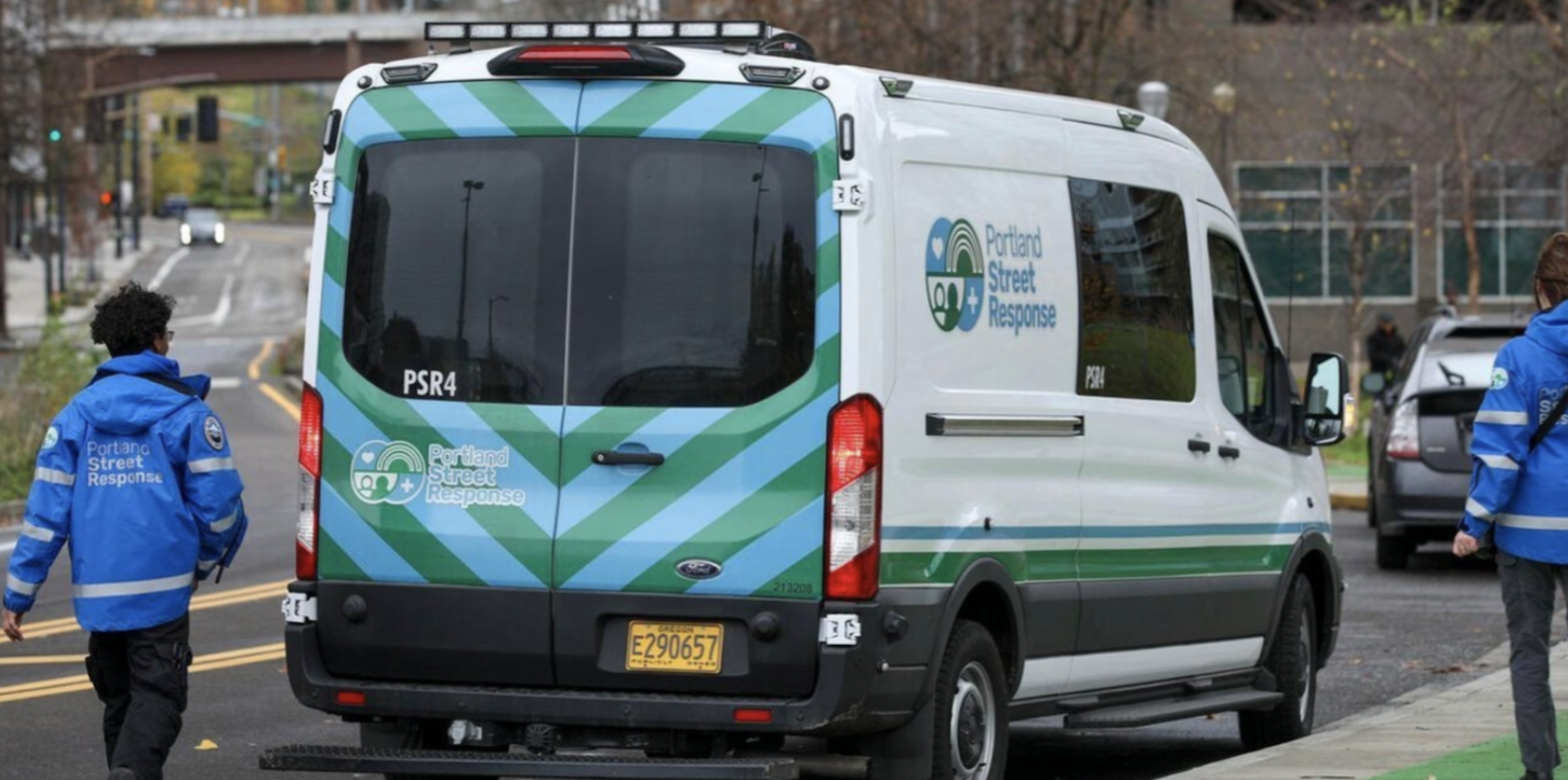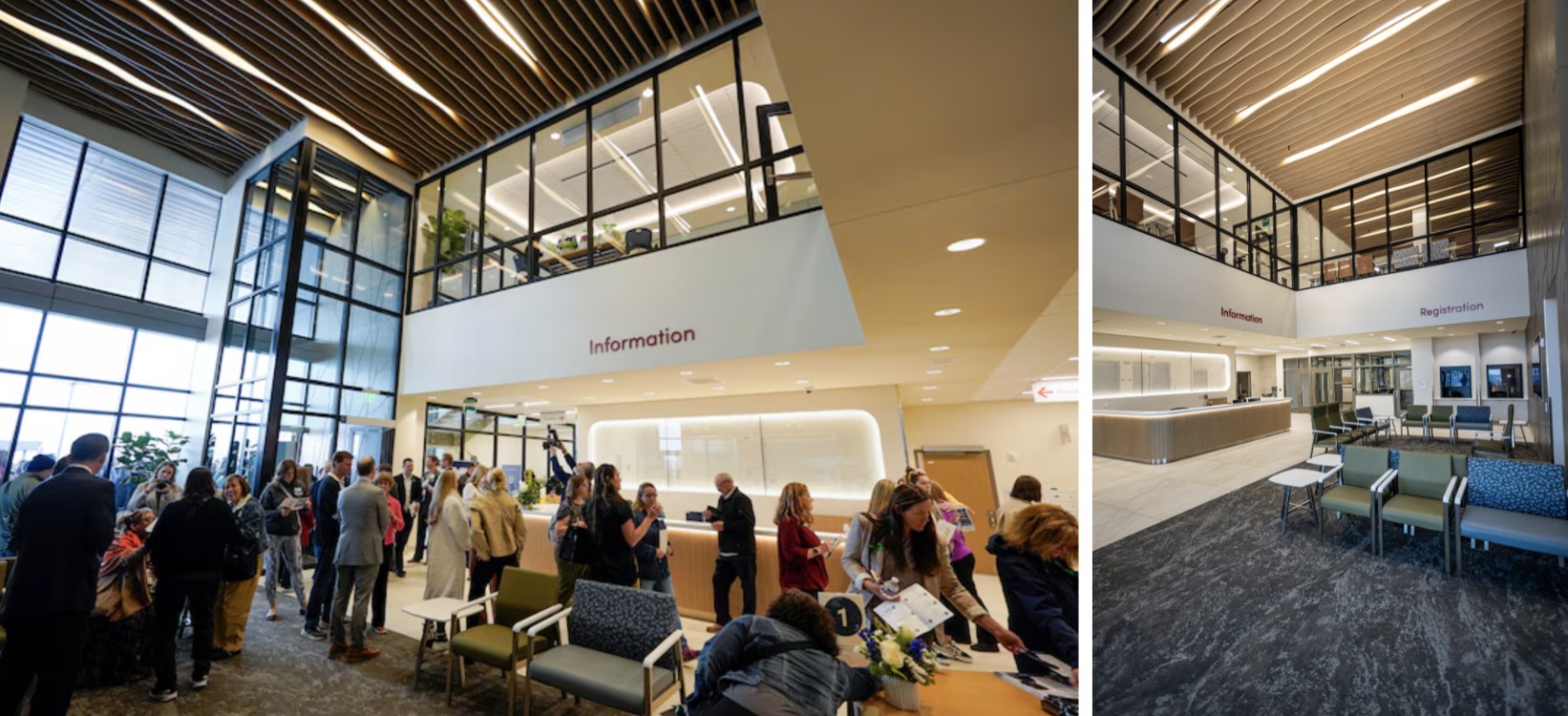Three Things To Read This Week
1. Portland Expands Its Street Response Team Into A Community Safety-Style Department—“An Equal Part Of The City's Public Safety System, Alongside Police And Fire.”
For KGW8, Portland’s NBC News affiliate, Blair Best reports on Portland City Council passing a resolution last week to expand the Portland Street Response team, “formally establishing [it] as an equal branch of the city's public safety system… to take some of the burden off first responders like police and firefighters.”
The department, which has been responding to mental health calls since 2021 when it first launched, will now be expanding its ranks and reach to 24/7 service across the city. Its staff receive the full “designation as first responders, with all the associated [employment] benefits,” and the team “will also get direct dispatch through 911.”
Here’s what local leaders are saying about the shift:
Portland Police Bureau: A spokesperson for the city’s police department told the news channel that Portland Street Response “are a valuable piece of Portland's public safety system, and we work with them regularly. We hear on the radio all the time officers asking for PSR, and it gives those officers another option for someone who doesn't need police assistance but needs help in other ways … We're happy to do our part and welcome an expansion of their program.”
Portland Mayor: Keith Wilson told the news that he is “optimistic about the PSR expansion, especially as they now have the freedom to take someone to shelter or to sobering beds under recent policy changes. Previously, PSR staff had to sit and wait with someone until a cab could come pick them up… ‘PSR is an important resource in our public safety system.”
Emergency Dispatcher: April Roa, a 911 dispatcher who now works as a program manager for Portland Street Response, explained that “I've had officers who have gone out [to mental health calls for service] because we needed to send somebody and they've gone out there and tried to connect with folks, and they came back to me saying, ‘'I felt ill-equipped to be able to handle that’ and ‘Why did I get assigned to that call?’... I was not always sending the right response to the right calls, and this was a gap that I saw… that's why I joined Portland Street Response — is to be part of that solution.”
Related: In a recent national public opinion survey, Safer Cities found that voters overwhelmingly support Community Safety Departments, with 82% saying that they support their city creating a Community Safety Department that functions as a “separate but coequal department alongside police and fire departments.” Read the full results here.
2. Momentum For Crisis Stabilization Centers Across The Country.
“First Of Its Kind In The State Of Mississippi” Crisis Stabilization Center Launching. For WHLT, CBS News’ local affiliate, Brandon Raines reports on the new crisis stabilization unit now under construction in Purvis, Mississippi that is “designed to help people facing a mental health or addiction crisis and connect them with local services.”
The two-story facility—which the news station reported “will be a game changer… the first of its kind in the state of Mississippi”—is housed in a converted former national guard building, “will include individual rooms, a nursing station, crisis intervention officers, specialized medical staff [and is] … staffed with a certified nurse practitioner, psychiatric nurse practitioner, and, eventually, a mobile crisis response team…"
Dr. Rita Porter, a psychologist who directs adult services with local Pine Belt Mental Health Center and is overseeing the services at the new facility, explained to WDAM News that the facility “provides treatment for the individuals in an environment that’s much more relaxed than a state hospital and it also helps people like law enforcement to be able to have some place… to bring individuals who they believe have mental health symptoms” instead of jail or an ER.In Salt Lake City, Utah Crisis Stabilization Center Sees “High Demand And Quick Intervention For Mental Health Services” With Patients “Better Served Than Being Sent To An Emergency Room Or Jail.” Salt Lake City Council members recently reviewed the progress of the city’s new Huntsman Crisis Center, just opened in March, which provides “immediate triage and stabilization for individuals in crisis,” Citizen Portal reported last month, and found that the mental health facility is already seeing “high demand and quick intervention for mental health services.”
The council noted that the “average wait time for individuals seeking help has improved to just seven minutes” and that after being successfully stabilized at the center, “70% of clients are referred back to their homes for outpatient treatment.” The city council members noted that the center is also operating “at full capacity, having served approximately 2,000 clients [so far this year], with… referrals coming from the Salt Lake City Police Department.”
That means that medical staff at the facility are treating an average of about “22 to 25 [people] per day” at this rate, Emma Benson reported for KSLTV, with patients “better served by being brought here than they were by being sent to an emergency room or jail.”
Las Vegas, Nevada “Opens State’s Largest Mental Health Crisis Center…Providing A Crucial Alternative To Jails And ERs, Which Are Increasingly Overwhelmed By Mental Health Emergencies.” For KKLZ, Jennifer Eggleston reports on the “grand opening of a new 17,000-square-foot crisis stabilization center…the largest of its kind in the state” which is “to provide immediate support for adults experiencing behavioral health crises [and] providing a crucial alternative to jails and ERs, which are increasingly overwhelmed by mental health emergencies.”
The facility features “outpatient care and offers mental health stabilization, medical screenings, and case management for up to a year” for patients who need the support, with services “available to adults 18 and older regardless of insurance status.”
To develop the state-of-the-art facility, “Clark County Sheriff Kevin McMahill and Abigail Frierson, deputy county manager, flew to cities [with crisis stabilization centers] to tour facilities” and get inspiration for this center, Grace De Rocha reported for the Las Vegas Sun. Ultimately, the center is part of “a three-part crisis response system employed in other cities” that the county is working to fully develop—including “a 988-call helpline, someone to respond – a mobile crisis unit – and somewhere to go, a crisis stabilization center.”
3. Quick Response Teams Launching To Fight Opioid Overdose Crisis.
In West Virginia, Cabell County’s Quick Response Team Is Helping To Reduce Overdoses. For WV Public Broadcasting, Mason Adams and Kelley Libby report on the county’s lauded QRT that is fighting the opioid overdose crisis in more rural edges of West Virginia “that’s known nationally for its struggles with opioids.”
The team, composed of “first responders, health officials and a peer specialist,” who respond to “emergency calls involving people with substance use disorder or experiencing mental health challenges… [and] check-in on folks who’ve recently had an overdose, or who are at high risk for one… and lift them up to get them into services.”
Before the team was established, the news station reported, “the people responding [to crisis calls were] law enforcement officers, firefighters and emergency medical technicians, who aren’t always trained to deal with these kinds of problems… so people tended to end up in jail, or they cycle in and out of crisis.” But as Connie Priddy, a registered nurse and program coordinator for the quick response team, explained to the news station, county leaders “finally realized we had a really huge gap, and we weren’t going to arrest our way out of the problem.”
In Virginia, Multiple Counties Launch Regional-First Overdose Response Unit “To Bring Addiction Support To Rural Communities.” For ABC8 News, Sahara Sriraman reports on four central Virginia counties—Prince George, Hopewell, Dinwiddie and Surry counties—rolling out “a Mobile Overdose Response Unit—a first-of-its-kind regional collaboration aimed at saving lives and breaking the cycle of addiction.”
The team is “designed to step in after the initial overdose incident—typically within 48 to 72 hours—and offer personalized, sustained support… visiting individuals and families affected by overdose [with Narcan and other immediate care]… while also providing pathways to treatment and long-term support. The peer specialists on the team then “stay in contact with individuals and families, helping them create recovery plans, attend meetings or access services such as detox, outpatient therapy and social support.”




